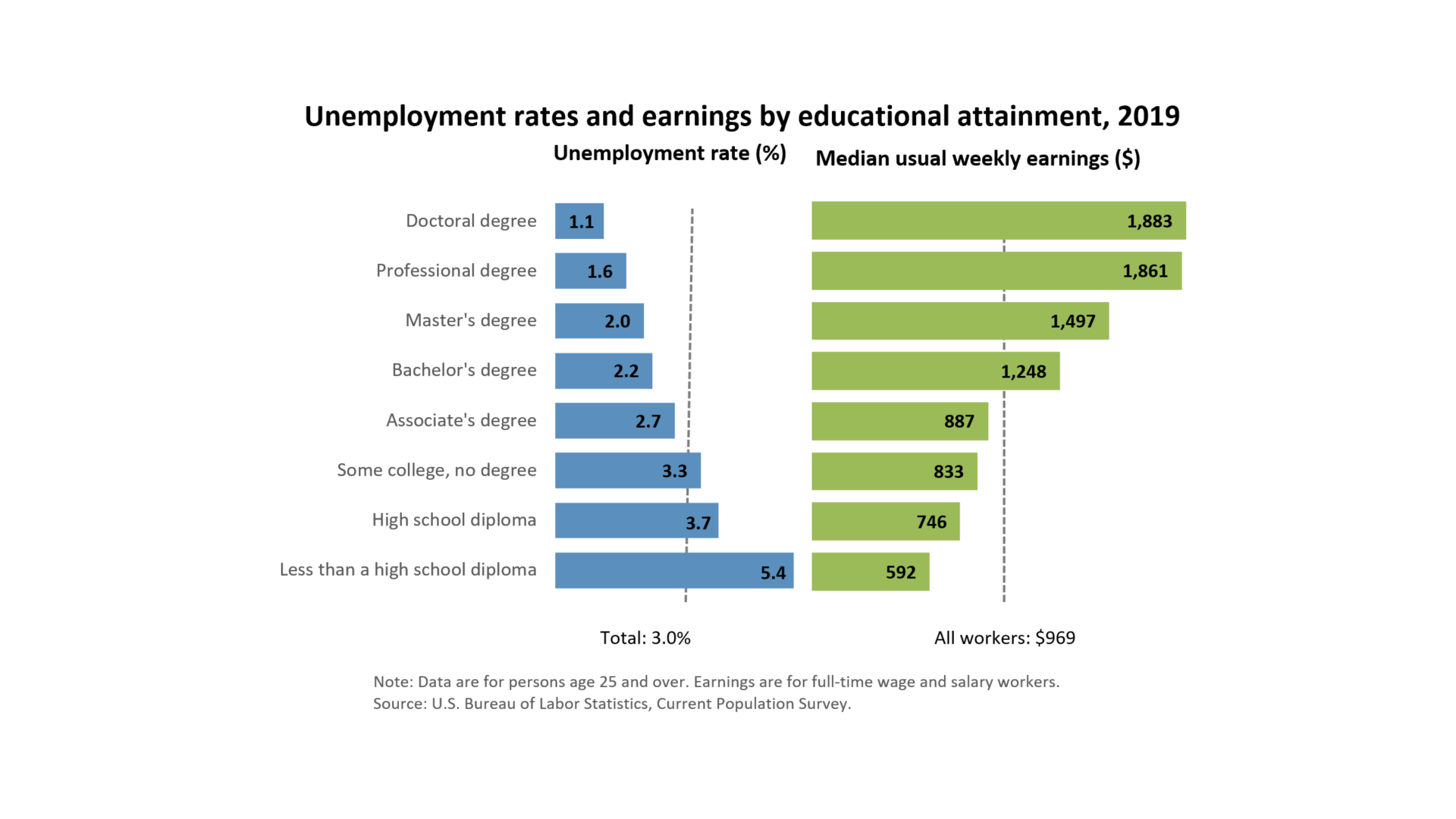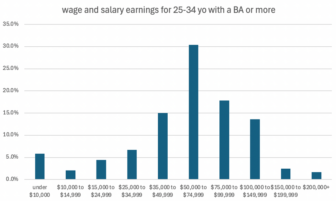
Four-year degree attainment is essential to eliminating income and racial inequality. As the chart below makes clear, those with a four-year degree or more work more and earn more.

In a terrific analysis of four-year degree graduation rates by race Bridge documents how far Michigan has to go to eliminate the gap between Black and white college completion. They used rolling three-year averages of graduation rates for 13 of Michigan’s 15 public universities to look for trends, limiting its examination to public universities with an average of at least 100 Black undergraduate degree-seeking students in their student body.
They found that the state average Black graduation rate was 36.8 percent. Ranging from 19.9 percent at Wayne State University and Saginaw Valley State University to 81.6 percent at University of Michigan, Ann Arbor. For whites the state average was 58.7 percent. Ranging from 43.1 percent at University of Michigan, Flint to 92.5 percent at University of Michigan, Ann Arbor.
Bridge continues:
A Bridge analysis of national data reveals that Black college students at Michigan’s public universities graduated on average at a rate that is 22 percentage points lower than their white peers who entered freshman orientation with them — one of the largest racial graduation gaps in the nation.
Michigan’s Black-white graduation gap is almost double the national average of 12 percentage points. While other states are narrowing that gap, Michigan’s gap is growing. Between 1998 and 2000, the average grad gap at the state’s public universities was 18 percentage points; a decade later it was 20 percentage points. And by 2017-2019, the gap had grown to 22 points.
Just horrible! What makes this even more distressing is other states have made substantial progress. This is not one of those intractable problems where we don’t know what to do. We do. Making progress now is largely a question of commitment. Bridge continues:
Other states with large Black-white income gaps have found ways to close the racial graduation gap. North Carolina has a $23,000 gap between median household incomes of Black and white families, yet African Americans complete bachelor’s degrees at the state’s public universities at a higher rate than white students.
The origin of these gaps do not stem from the students themselves, said Kristen Renn, associate dean of undergraduate studies for student success research at Michigan State University.
“It’s not the students who need fixing, it’s the institution that gets in their way” she said.
Bridge concludes with a description of the playbook Georgia State University is using to eliminate their Black/white graduation gap. The results:
In 2018-2019, the Black graduation rate was 57 percent, while the white student graduation rate was 53 percent. Twenty years ago, when Georgia State first began addressing this issue, the white student graduation rate was 26 and the Black rate was even worse: 18 percent.
Georgia State’s Black students have been graduating at a rate equal to or higher than its white students since 2005.
A new book Won’t Lose the Dream details how Georgia State achieved its college graduation rate breakthrough. We have featured the playbook detailed in the book Redesigning America’s Community Colleges. Their playbook is as applicable to non-selective-admission universities as it is to community colleges. Both books are worth reading.
To make matters worse there also is a huge college attainment rate gap by class. The Federal Reserve Bank found in their annual report on the economic well-being of America households that 72 percent of those 22-29 with at least one parent with a bachelor’s degree have a B.A. This compares to 35 percent with a B.A. of those 22-29 with at least one parent with some college but neither with a bachelor’s degree and 19 percent of those with both parents having a high school degree or less.
It is far past time that Michigan learn the lesson that as long as we have huge gaps by race and class in four-year degree attainment Michigan will not substantially reduce income and racial inequality. End of story!







